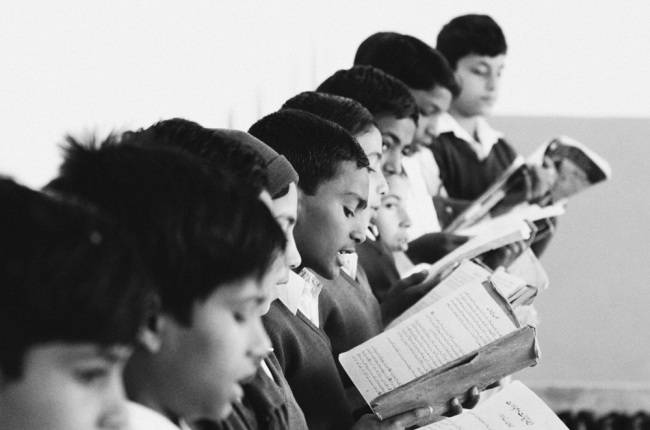States, all around the world, characterize their civilians in order to bring their thought patterns in line with the state narrative. States promote uniformity of thought, singleness of objective and a general coherence about identity by twisting a few facts and presents them in a light which offers more favorable story. In a way, this is how states control the minds of its subjects in order to banish rebellious thinking and outcasts those who challenge the state’s perspective.
In the modern world where there is abundance of information, statistics and only seldom things can escape the scrutiny of experts, this is no big a secret. States do employ such means and, perhaps, for the good of society: every individual is not capable of handling the truth; and for them, illusions become their oxygen. Modern states, with an art of subtlety, through education and press weaves the thought fabric of its citizens. Very few amongst us can actually lay bare this tactic of the state and trace the truth.
Pakistan’s bureaucratic narrative can be one of the finest examples for that matter. States do twist the narrative, but here we have the whole history being written in order not to offend handful personages. From sweeping under the rug the shady motives of coup to muddling up the personal life of the founder, we have it all. Generals, who can never represent nation at large, are never charged with treason in text books. Hardly it is ever mentioned that these greedy officers committed treason by abrogating the constitution and were punishable by death for doing so. Not even once it is imparted to the impressionable minds that why military coups dent a nation so injuriously that it takes nearly a decade to heal the implications. In a way, bureaucracy, that had its own axe to grind in coups, considers coups a part of political process where one person takes over from another and that’s that.
Pakistan’s education system hardly ever promotes free thinking. Imagination is not allowed to break free for the fear of rebellion. Wings of spirit are clipped so that its flight may not rouse the other spirits. One major reason why public and private education are so various in what they have to offer is primarily because public education is still stuck where it was a few decades ago, while private sector tutors its students using the up-to-date courses. Consider the computer course of matric and intermediate level of public sector. Even today, when the world has done away with floppy disks, students are still asked to not only describe what a floppy drive is and how it looks like, but they are asked to mention its price as well. The tests seem to promote the career of keeping a shop than to challenge the conceptual learnings of students. Students are still taught nearly obsolete MS-DOS and COBOL languages that has little use in practical world.
Another dilemma of such courses is their lack of relevance to the practical world. Students easily detect that the syllabi they are being taught is applicable, if applicable that is, only in the West. Inability of syllabi designers to indigenize the course is anathema to any innovation students can bring to their field of study. Finding books of little help in the real world spreads the notion of the uselessness of books and extensive study. If this notion is developed and clung onto at a young age, then the age long abhorrence for books is developed. Efforts should be made by teachers and the administration to teach students in a way that the fact of usefulness of books is presented in a broad day light.
Education is a sensitive matter in the age of nation; it must be handled by those who honestly believe and fully understand the power of education and the implications if not imparted in correct manner. Instead of contorting the truths to suit the bureaucratic needs, nationalism must be promoted. This nationalism should not find its roots in chauvinism and the hatred of other nations, rather in tolerance and pluralism. It must promote democracy, not only as a political process but as a way of life where people, and their rulers, believe in the equality of opportunity. Along with these, if education cannot produce free-thinkers who seriously understand the wounded nation of Pakistan, then it confirms the defects of our educational system. Now is a time, not of despair, but of active engagement.

Leave a comment